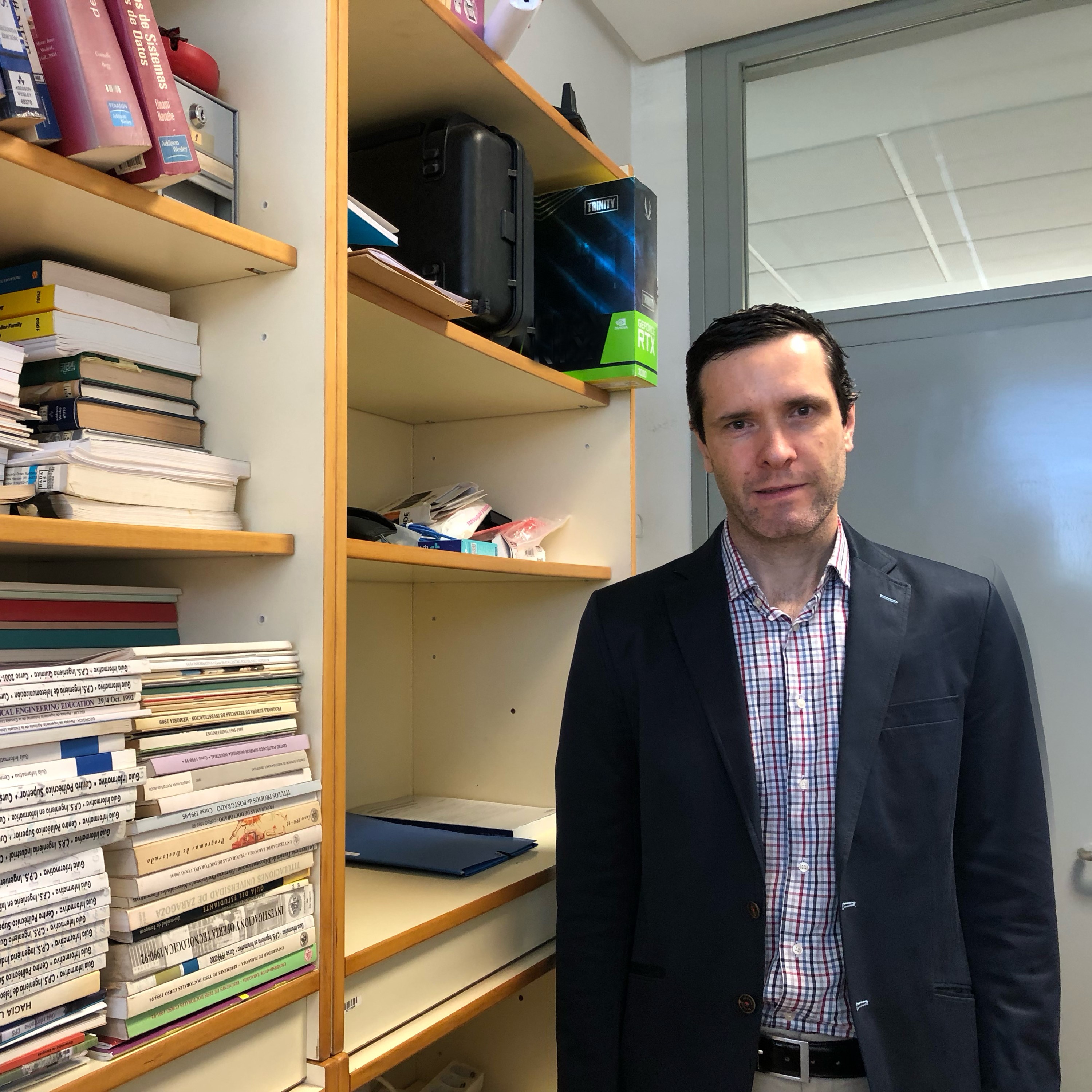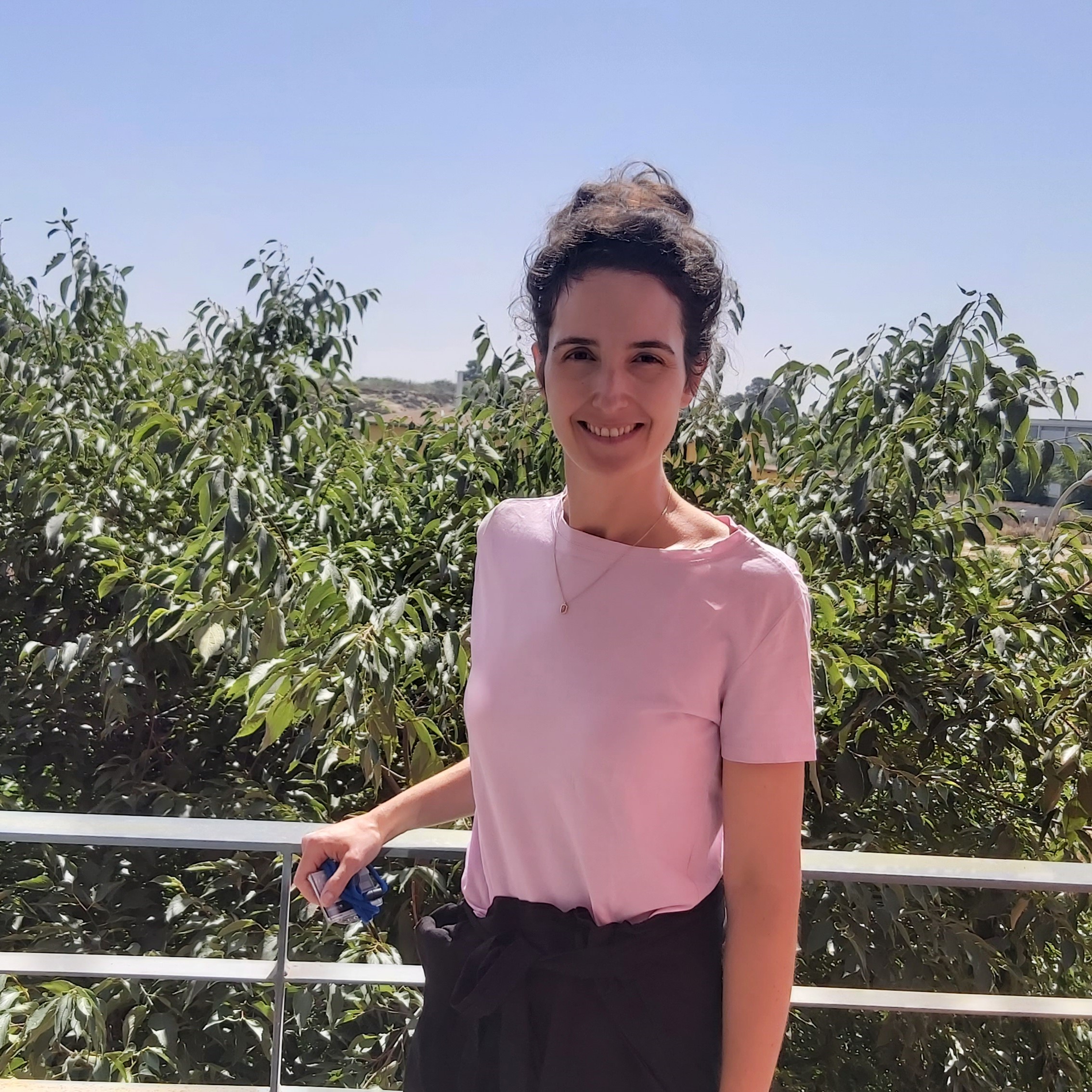
Why did you decide to go into research?
When I was finishing my degree, a group of colleagues and I decided to start our own software development company. It was an exciting project, but at that time I also came into contact with research when I started my Final Degree Project. For a while, I tried to combine the two, but I finally decided to do research in the field of data management in mobile computing. Working in research allows you to be in touch with the latest developments and trends, although not all of them make it to the market or do so later.
Was it always clear to you what you wanted to do?
What was clear to me is that, in general, I like to do work that requires analysis and creativity. Professionally, I enjoy learning and trying to find solutions to problems. The path I'm on at the moment accommodates these concerns, but there are other equally valid paths.
You are part of the COSMOS group, what are your main lines of research?
The group's work focuses on complex systems, characterised by a distributed structure and non-functional requirements for scalability, fault tolerance and dynamic behaviour. These types of systems appear, for example, in smart city and smart building scenarios.
The group includes people specialised in a wide variety of topics, for example, in computing infrastructures, artificial intelligence, bioinformatics or data management. The diversity of profiles, which is key to tackling complex problems, is one of the group's strengths.
Any ongoing projects you would like to highlight.
We have many. My specific area of work is digital data management and in this field we are currently developing the NEAT-AMBIENCE project, which deals with the design of approaches that can help people in decision-making in different scenarios. Through the development of appropriate information systems, we can try to influence people to act responsibly. For example, in a situation where there is a risk of the spread of diseases such as covid-19 or in a scenario where they take an action with an environmental impact, such as using a car to travel. On the other hand, personalisation becomes vitally important to provide each person with the data they really need at the right time. The project addresses four use cases, related to tourism, transport, health and agriculture.
We also have another very interesting project focused on the development of computational tools for the diagnosis and prognosis of neurodegenerative diseases.
My favourite thing is to be constantly learning and to be in contact with students.
How long have you been associated with the I3A?
I became a member of the I3A in September 2007, after finishing my doctoral thesis.
What would you highlight about the Institute?
As it brings together different thematic areas within the field of technology and engineering, I think it has enormous potential to tackle multidisciplinary projects. It is not always easy to set up collaborations between different research groups, but the Institute makes an important effort to make them visible and integrate them.
What do you like most about your job and what do you like least?
What I like most about my job is the possibility of continually learning and being in contact with students who in the near future will be working to develop solutions that can contribute to improving society and our lives in general. What I like least is the administrative burden that we sometimes experience. Also, sometimes the passion for this profession is often accompanied by high demands on time and energy. Sometimes it is difficult to find the right balance.
What would you say to someone who is thinking of going into research?
If they like it, go for it. And, above all, enjoy not only the achievements but also the process.
CLOSE UP...
A dream: That scientific advances will soon allow us to solve the main challenges that exist in the field of health.
A book: I like books of various kinds, but above all books of intrigue and suspense. As an example, I can mention "Jurassic Park" by Michael Crichton. I have always been fascinated by that story.
A series: "Lost" or "X-Files".
Hobbies: Reading, walking, cinema, visiting new places, having a coffee in peace and quiet.
Favourite musical group: I've never been a big fan of specific musical groups. There are songs that I like and others that don't transmit me enough.
A trip: In 2002 I participated for the first time in a research congress in Bratislava and there I met very interesting people.
An awaited trip: To walk the Camino de Santiago from Zaragoza. I'm quite urban and that would take me out of my comfort zone.
Favourite place: More than a favourite place, there are several places where I like to be with specific people. The most important thing is the company and the teams you are part of.
How would you define yourself: I wouldn't dare try to define myself.
